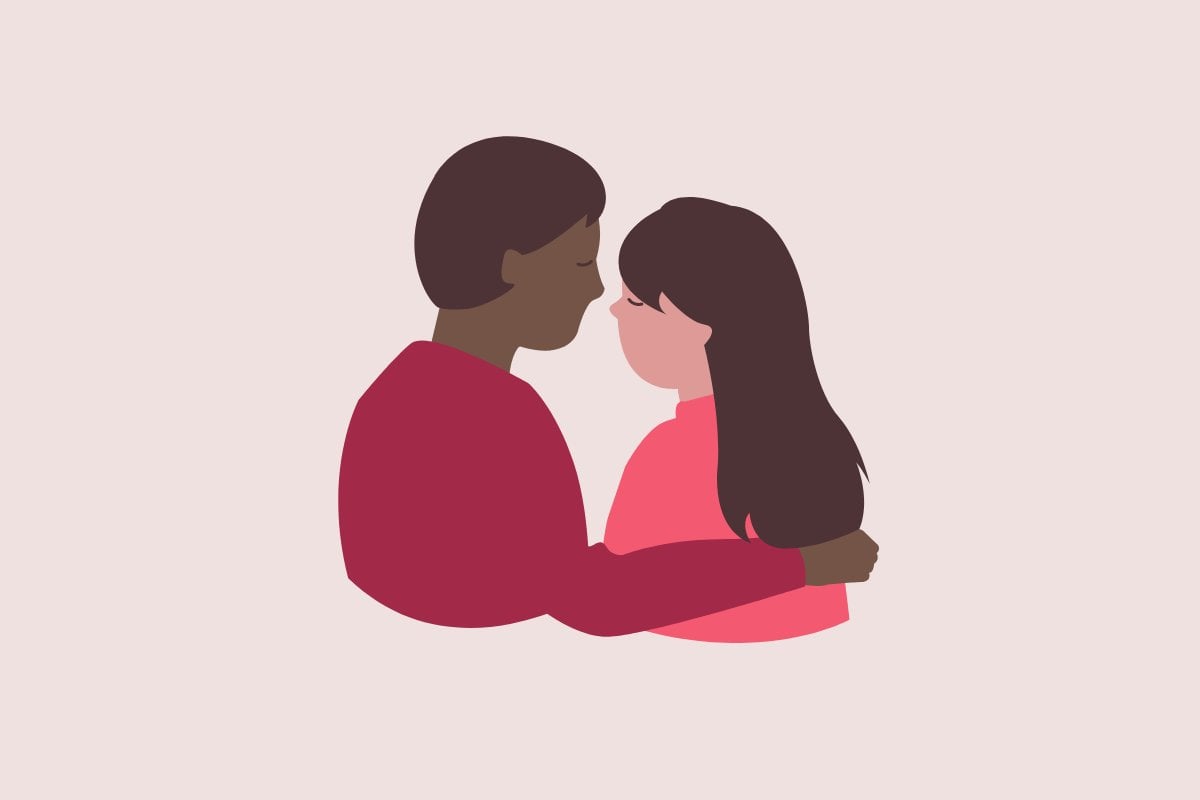
This post discusses abuse and could be triggering for some readers.
My husband said something sh*tty to me. I can’t even remember what it was. I only remember how my body seemed to cave in on itself, like I was trying to protect myself from being hit.
I looked up and met the eyes of the husband of the couple sitting across from me. He looked so sad.
He later told me, "I’ve never seen you get so... small."
Watch: What my partner doesn't know. Post continues below.
My husband had that kind of power over me, to shrivel and diminish me with just a few words.
We were out to eat at a restaurant with another couple, hoping to get some help on the recurring issues in our relationship, particularly our problematic and ugly fights.
I’d just come back from the salad bar and was staring distastefully at the weird set of foods I’d decided to load my plate with. Why on earth did I get banana peppers AND raisins? I was thinking when my husband said what he said that crumpled me.
After that regrettable incident, the lunch with this couple we knew proceeded as planned: they walked us through some better communication and fighting strategies.
